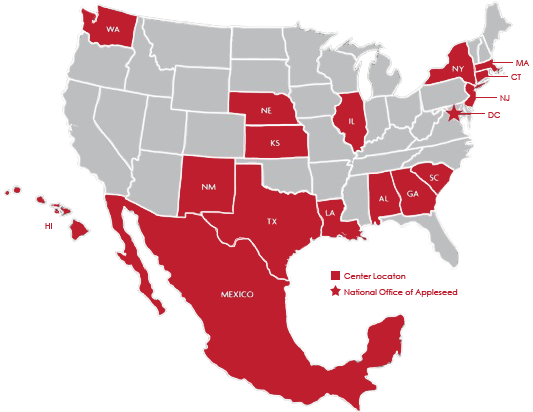Pro bono lawyers from Baker McKenzie, Boston Scientific and Liberty Mutual, and Staff of Massachusetts Appleseed Center for Law and Justice, co-author handbook
For more information, please contact:
Leah Schloss
Associate Director, NA Communications
leah.schloss@bakermckenzie.com
+1 212-626-4474
Boston, MA, February 23, 2021 – Global law firm Baker McKenzie, Massachusetts Appleseed Center for Law and Justice, Boston Scientific, and Liberty Mutual are pleased to announce the publication of the Massachusetts Homeless Youth Handbook, an online resource designed to empower young people to understand their legal rights and take action to build safe, stable futures with Massachusetts-specific information.
More than 3,780 unaccompanied youth were identified as living on their own and without consistent access to shelter in Massachusetts in 2018. In Massachusetts schools, more than 23,500 students are estimated to be experiencing some form of homelessness, and their struggles have been worsened by the COVID-19 pandemic.
The Handbook is an online resource written in plain-language and in a youth-friendly question-and-answer format to ensure young people can use it themselves. The resource will be shared with schools, libraries, public agencies, social advocates, and others throughout Massachusetts, and Massachusetts Appleseed will be organizing trainings around its use.
“Youth experiencing homelessness in Massachusetts face extraordinary challenges related to their path to self-sufficiency and stability, and that has only been exacerbated by the COVID-19 pandemic,” said Deborah Silva, Executive Director of Massachusetts Appleseed. “Our aim is to empower these young people to navigate through their struggle against homelessness, and equip them with the knowledge and tools they need to move beyond their current realities and find safety and support.”
More than 60 volunteer attorneys and staff committed hundreds of hours to researching, writing, and editing the handbook, which covers a range of topics including education, domestic and dating violence, healthcare, and more. Volunteer attorneys were guided by community-based experts, who provided essential insights throughout the process.
“We are so pleased to contribute to this worthy effort in providing support to homeless youth and their advocates,” said James Kelleher, Executive Vice President and Chief Legal Officer at Liberty Mutual. “With this easily accessible handbook, we can help lift young people out of homelessness and change their trajectory toward independence and stability.”
“We know that supporting underserved youth isn’t just the right thing to do for today—it’s also fueling a diverse talent pipeline of problem-solvers for the future,” said Desiree Ralls-Morrison, senior vice president, general counsel and corporate secretary at Massachusetts-based medical technology leader Boston Scientific. “We are hopeful that the new Handbook will help homeless young people to find security and build a better future.”
Participating youth from the organizations My Life My Choice (an organization that works to end commercial sexual exploitation of children) and Bridge Over Troubled Waters (a Boston-based agency providing services for homeless, runaway, and at-risk youth) reviewed specific handbook chapters to ensure the content includes information most pertinent to their needs and effectively simplifies legal terminology.
Baker McKenzie has partnered with other organizations to produce handbooks in 8 different states, as well as Washington D.C. Learn more here.
“The Homeless Youth Handbook project is an excellent example of how collaboration among in-house counsel, non-profits and law firms can exponentially increase assistance to those in need, particularly the most vulnerable among us during the COVID-19 pandemic,” said Colin Murray, North America Chief Executive Officer at Baker McKenzie. “Through partnerships like this, we are able to provide these youth in the US, and their advocates, with clear guidance on young people’s legal rights. Thank you to the talented teams at Liberty Mutual, Boston Scientific and Massachusetts Appleseed for their collaboration with us on this important project.”
About Massachusetts Appleseed
Massachusetts Appleseed’s mission is to promote equal rights and opportunities for Massachusetts residents by developing and advocating for systemic solutions to social justice issues. The nonprofit researches and identifies the ways in which the justice system, schools, and government agencies have systematically failed impoverished and vulnerable communities, challenges harmful public policies that perpetuate injustices and inequities, advocates for statewide policy solutions, and develops know-your-rights resources for those impacted. (https://massappleseed.org)
About Liberty Mutual
At Liberty Mutual, we believe progress happens when people feel secure. By providing protection for the unexpected and delivering it with care, we help people embrace today and confidently pursue tomorrow.
In business since 1912, and headquartered in Boston, today we are the sixth largest global property and casualty insurer based on 2019 gross written premium. We also rank 77th on the Fortune 100 list of largest corporations in the U.S. based on 2019 revenue. As of December 31, 2019, we had $43.2 billion in annual consolidated revenue.
We employ more than 45,000 people in 29 countries and economies around the world. We offer a wide range of insurance products and services, including personal automobile, homeowners, specialty lines, reinsurance, commercial multiple-peril, workers compensation, commercial automobile, general liability, surety, and commercial property.
About Baker McKenzie
Baker McKenzie helps clients overcome the challenges of competing in the global economy. We solve complex legal problems across borders and practice areas. Our unique culture, developed over 70 years, enables our 13,000 people to understand local markets and navigate multiple jurisdictions, working together as trusted colleagues and friends to instill confidence in our clients. (www.bakermckenzie.com)
Want to stay informed on the latest issues Massachusetts Appleseed is working on?
Sign up for our mailing list.

